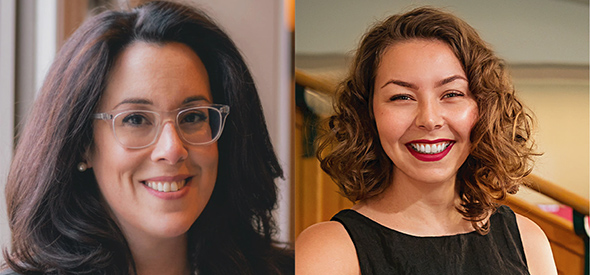In-Kind as a Community Resilience Strategy During a Global Crisis
Author(s):
Tanya Woods
Sierra Bilton

Now, more than ever, people around the world are concerned about the impact that the current health pandemic will have on their daily lives and what a new form of ‘normal’ might look like. What is increasingly clear is that no one is ready for this degree of long-term global uncertainty — and global economies, financial markets, and communities have been hit hard.
What isn’t being discussed right now is the pressing need for a responsive social impact strategy beyond loans (which risk worsening this divide) and tax breaks (that are nowhere near instant) to address the distinct socio-economic divide being exacerbated by the COVID-19 pandemic.
There is no shortage of questions.
● How are people and communities supposed to interact when cash is tight and social distancing is encouraged?
● How are governments to manage and predict the needs of their citizens as the situation continually evolves?
● As the tax base further shrinks and companies become insolvent, how will public services be resourced?
● How are charities and front-line community organizations supposed to serve the increasingly vulnerable populations needing their assistance?
Despite the critical nature of these questions, there remains a shortage of answers.
To avoid serious social equality regression, these questions require a strategy that puts those most vulnerable first. But our cash resources are finite, and our government’s bandwidth is stretched thin. To address these challenges, we need to get creative with how we allocate all of our other resources — this includes our time, our skills, and material goods.

Grocery stores have already seen a shift in what people buy and how regularly, which makes it difficult to avoid over-stocking and waste. Similarly, professionals in self-isolation have valuable abilities that risk being under-utilized in the days to come.
During times like these, big corporations and global billionaires — provided they maintain their health — have cash fluidity to weather such uncertain economic times. However, as we’ve begun to realize, those who keep our economies and communities afloat — small and medium businesses and their employees, the shrinking middle class, people living paycheck to paycheck — do not have the savings, stockpiled resources, or social safety nets for the same resiliency.
Charities and community service organizations are already being called upon to address the various pressing needs coming from many places. The vulnerable in our communities have the most pressing need for support right now and this will only become more acute as time goes on.
What if we could leverage a community of professionals to help them?
We have little idea of what exactly is needed right now or what will be needed tomorrow because we don’t have a coordinated communications system to map the landscape of constantly changing community needs in real-time. We have local and national news, social media and the Internet, but getting a clear view of what every community needs, based on what each charity and nonprofit serving that community is reporting, has not been scaled for times like these — but it is built.
Let me tell you about a Canadian-made social impact platform to help people now.
Project K(IN)D, an online technology platform made by highly skilled volunteers, was designed to address the persistent misalignment between needs and available resources during economically challenging times, unexpected natural disasters, and climate change. At the heart of this social and environmental impact technology is a belief that if community organizations, businesses, and citizens are interconnected to help each other in times of need and in times of prosperity, they will be able to build collective resilience to manage any future crisis together.

The platform does this by matching specific needs with a pool of donors that have readily available resources of time, talents, and basic goods to fulfill the needs. This can mean the difference between someone worrying about where to get their next meal or medication and getting the help they need now. Inspired by peers sharing music and exchanging value through technology, the Project K(IN)D platform enables peers to help one another with a bottom-up societal response framework that creates efficiencies of scale and puts human lives front and centre.
We have an opportunity to rebuild a stronger and more connected social framework that not only responds to the imminent crisis but continues long after. Let’s take this opportunity to build social innovation the right way, by re-orienting the systems to serve people first and bridging the socio-economic divide in creative and inclusive ways. We can come out of this crisis stronger than before and with a better understanding of our neighbours and communities. In short, we can create a kinder and more resilient global village that puts humanity first.
To learn more about the world’s first in-kind impact movement go to www.projectinkind.org and join your community at app.projectinkind.org.

